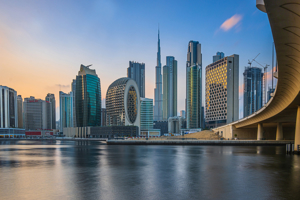Lights, Camera, Rebates: A Closer Look at Film Financing in the Gulf
Cannes and a World of Opportunity
With the 77th annual Cannes Film Festival underway, we note the excellent opportunities in the Middle East and Gulf in particular in the way of film financing possibilities. Below we discuss the significant regional developments in this regard and how the Gulf continues to enlarge its role in the international film industry.
The Situation in Europe
According to recent figures published by the European Audiovisual Observatory, nearly 42% of the total budget of the typical European film comes from public financing support. This public support consists of direct public funding and production incentives, the former remaining the largest source of film financing for European fiction feature films. Production incentives have increased significantly, however, rising from 9.6% of the total financing in 2016 to 17.8% in 2020.
Growth in the Gulf
This increase in production incentives is consistent with the position in the Gulf and the transformation of the regional film rebate landscape that is taking place. While Arab cinema itself has a substantial history, particularly in countries such as Egypt and Lebanon, for example, film production in the Gulf has not been a major focus until quite recently.
With the rise of home-grown talent and an increase in the number of ecosystems available to support creatives and other professionals in the film industry, the region is well placed to continue to grow as a film production powerhouse. A primary contributing factor to this growth is the highly attractive film rebate schemes on offer from the United Arab Emirates (UAE), and most recently, the Kingdom of Saudi Arabia (KSA), which are discussed further below.
United Arab Emirates
Art in its various forms, whether through poetry, calligraphy, or dance, has long played an important role in Emirati culture. In just over two decades, starting with the first full-length Emirati film in the late 1980s, the UAE has cultivated a burgeoning film industry. Home to award winning Emirati films like City of Life and Sea Shadow, the UAE is quickly becoming recognised for its local talent and creative edge.
The UAE is also enhancing its recognition on the international stage with the introduction of a generous cash rebate for feature films and television series filmed in the nation’s capital, Abu Dhabi. The Abu Dhabi Film Commission is offering a cash rebate of up to 30% of qualifying production expenditure in the emirate of Abu Dhabi (capped at US$ 5 million for feature films and US$ 1 million for television series).
To further support this growth and rising demand, Abu Dhabi based twofour54, recently announced plans to construct a state-of-the-art production studio. The complex is set to cover 100 acres of land and will house 11 sound stages and six standing sets. Alongside these facilities, the development will also feature 7,000 square meters of office space, equipped with a range of production amenities, including post-production and screening rooms.
With mega productions such as Sonic The Hedgehog, Star Wars: The Force Awakens, Fast & Furious 7, and, Mission: Impossible – Dead Reckoning Part One, filmed in Abu Dhabi, the capital will likely continue to attract large, international productions in the future.
Kingdom of Saudi Arabia
While KSA is a relatively new addition to the region’s film scene, it is seeking to establish itself as a serious film production destination on the global stage, offering some of the most attractive rebates currently available anywhere. Coupled with extensive government support, these new rebate offerings, and other initiatives from the Kingdom merit attention.
At the governmental level, funding has been directed towards film festivals, film commissions, writing labs and the establishment of media entities like NEOM and Alula. Additionally, there has been a raft of support in terms of grants, training and on-the-ground productions that have collectively transformed KSA into a bustling destination for film production.
The Saudi Film Commission offers and administers the Film Saudi Incentive Program which is available to both Saudi and international production companies and offers a cash rebate of up to 40% on production spend. This is subject to a minimum capital expenditure of US$ 200,000 for fiction feature films and US$ 50,000 for documentaries and animation projects.
This program runs in conjunction with other offerings such as Film Alula and NEOM. The former facilitates applying for the rebate when shooting within Alula, while NEOM offers a separate cash rebate scheme of 40% and is available for film and all forms of TV production, including drama series, reality TV shows and documentaries, as well as TV commercials and short-form content production. NEOM’s rebate is also subject to increases based on a producer’s contribution to the development of the local media ecosystem, including production placements and internships for young Saudis.
The Future of Film
These incentives present compelling opportunities for international and domestic filmmakers alike. While KSA’s production landscape is still growing and evolving rapidly, for an aspiring filmmaker or those in the media business, KSA is the current land of opportunity. Likewise, the UAE continues to provide both financial incentives and logistical support to further grow its already vibrant creative ecosystems. The implementation of these programs significantly furthers the global visibility of the region and underscores a commitment to nurturing creatives and the industry as a whole.













